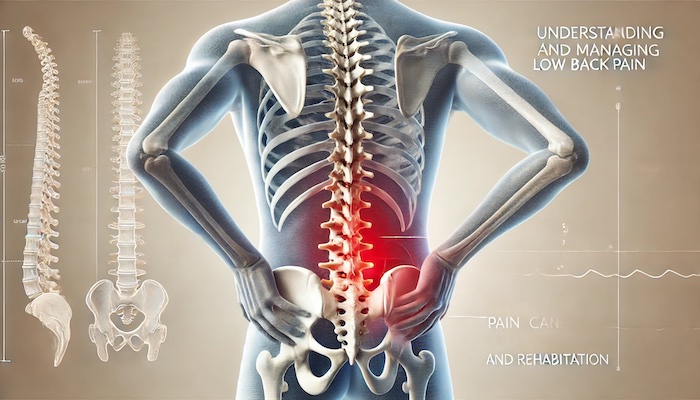
Low back pain is one of the most common conditions affecting adults worldwide, contributing to reduced mobility, decreased quality of life, and lost productivity. For many, persistent pain can make daily tasks feel insurmountable but effective treatment options are available. At Precision Pain Care and Rehabilitation, interventional pain management offers relief for those struggling with low back pain, allowing them to return to a more active and pain-free life.
Causes and Risk Factors of Low Back Pain
Low back pain can stem from a variety of causes, often due to a combination of factors:
- Degenerative Disc Disease: Aging and wear on spinal discs reduce cushioning between vertebrae, leading to pain and stiffness.
- Muscle Strain and Ligament Sprain: Overuse, heavy lifting, or poor posture can cause strains in the muscles or ligaments of the lower back.
- Spinal Stenosis: Narrowing of the spinal canal, common in older adults, can lead to nerve compression, pain, and limited mobility.
- Herniated Disc: When a disc slips out of place, it can press on surrounding nerves, causing pain, numbness, or weakness.
Occupational factors, obesity, and lifestyle habits, such as prolonged sitting or a lack of exercise, can also increase the likelihood of low back pain.
Interventional Pain Management: A Path to Relief
Interventional pain management utilizes targeted, minimally invasive techniques to reduce pain and inflammation, restore function, and improve quality of life. Here are some effective interventional approaches used to manage low back pain:
- Epidural Steroid Injections (ESI): ESIs deliver anti-inflammatory medications directly to the epidural space surrounding the spine, alleviating pain and swelling around affected nerves. These injections are particularly effective for radicular pain that radiates down the legs, often due to a herniated disc or spinal stenosis.
- Facet Joint Injections: These injections target the small joints along the vertebrae in the lower back, which can become inflamed and cause localized pain. A mixture of anesthetic and corticosteroid is injected to reduce inflammation and provide lasting relief.
- Radiofrequency Ablation (RFA): RFA uses radio waves to heat and disable specific nerve fibers responsible for transmitting pain signals from the spine. This approach is often used for chronic low back pain stemming from conditions like arthritis in the facet joints, offering longer-term relief compared to steroid injections.
- Nerve Blocks: By blocking pain signals from reaching the brain, nerve blocks provide temporary relief, often as a diagnostic tool or a precursor to more permanent treatments like RFA.
- Spinal Cord Stimulation (SCS): SCS involves implanting a small device that sends electrical impulses to the spinal cord, masking pain signals before they reach the brain. This technique is beneficial for patients with chronic low back pain that has not responded to other interventions.
Evidence Supporting Interventional Pain Management
Research has shown that interventional techniques like epidural steroid injections and radiofrequency ablation are effective for pain relief and improved function in patients with chronic low back pain. Studies indicate that these methods help patients reduce reliance on opioids, improve mobility, and decrease the impact of pain on daily life.
When to Consider Interventional Pain Management
If conservative treatments like physical therapy, medications, or rest fail to alleviate low back pain, interventional pain management might be an appropriate next step. Patients who experience pain that radiates, causes numbness or weakness in the legs, or significantly impacts their daily activities are ideal candidates for these advanced treatments.
Taking Control of Low Back Pain
Low back pain can be challenging, but interventional pain management offers an effective pathway to relief. By addressing the root causes of pain through minimally invasive procedures, patients can experience significant improvements in mobility and quality of life.
Precision Pain Care and Rehabilitation has two convenient locations in Richmond Hill – Queens, and New Hyde Park – Long Island. Call the Queens office at (718) 215-1888 or (516) 419-4480 for the Long Island office to arrange an appointment with our Interventional Pain Management Specialists, Dr. Jeffrey Chacko or Dr. Sonny Ahluwalia.













